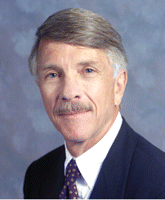There is, I think, a fairly natural reflex for many of us in the medical profession, which is to avoid saying very much about our own illnesses or infirmities— especially those that are chronic and potentially disabling. It's personal, we say. Why should it be anybody's business, and it shouldn't make any difference if we have to step away from the meeting to administer an insulin injection or to take an antihypertensive. Not that we would keep it a secret if anyone asked, mind you, but there's no need to broadcast it. Well, maybe that makes sense in a way, just as we wouldn't want to burden others with our personal troubles of all sorts, such as how to pay the kids' tuitions or how to take care of Mom, whose Alzheimer's is getting much worse. After all, we're in the business of helping others, not of asking them to help us.
But perhaps there's more than a little bit of rationalization at play here, or at least sometimes—which is the fear of being perceived as weak or in some way not at the top of our game. I think about this at times, as we work so hard to fight the particularly daunting and formidable ogre of the stigma of mental illness. It seems to me (and here I don't have hard data) that there may be a disconnect between the published statistics about the high prevalence of psychopathology and the much lower prevalence we come up with if we mentally survey our friends and acquaintances to add up those who openly speak about their depression, anxiety disorder, or other psychiatric illness. We are not immune from the very stigma we fight.
These are among the many reasons that so many of us sent personal messages of thanks, as I did, to Marsha Linehan, Ph.D., after the remarkable front-page "above the fold" story appeared in the New York Times on June 23 titled "Expert on Mental Illness Reveals Her Own Fight." In a letter sent to the Times shortly thereafter, I wrote, "Dr. Marsha Linehan does a great service to the millions of Americans who suffer from mental illness. As Dr. Linehan so movingly illustrates, people with psychiatric disorders are not so different from people with other medical conditions such as diabetes or heart disease—they are our friends, teachers, doctors, neighbors, and loved ones. Because of the stigma still felt about seeking treatment, however, those struggling with psychiatric problems often suffer in silence."
It's one thing, and a very big thing at that, to have suffered so much from such a savage and unforgiving illness as borderline personality disorder (BPD), but it is so much more to have countered that suffering with resilience and strength, then to develop a treatment for BPD, then to study it and publish solid research findings demonstrating its efficacy, and then, perhaps most important, to publicly tell this very personal story of despair and triumph.
I'm reminded of one of my assignments as a member of the DSM-5 Work Group on Personality and Personality Disorders, which was to review all of the comments that were received during the initial posting of proposed draft revisions of the criteria for BPD. Over 400 comments were received on the personality disorder section overall, and by far the most frequent comment about BPD was the suggestion to change the name, since, many argued, "borderline" has become a pejorative term. While this is clearly an important concern to consider, I don't think the name is the problem, and changing the name won't change the illness. What I think is more important is to understand BPD itself and to recognize that interpersonal turbulence, mistrustfulness, and "help rejection" are behavioral aspects of the illness, driven by intense internal emotional distress.
Similar things could be said about extreme or even out-of-control behavior that is symptomatic of other major mental illnesses, such as bipolar disorder. Here, too, there are champions who have been courageously telling their own stories, and one notable example is Kay Redfield Jamison, Ph.D., who speaks so articulately of her struggles with bipolar disorder. At the annual meeting of the Royal College of Psychiatrists in Brighton, England, in June, for example, Dr. Jamison eloquently told her story to a highly appreciative international audience of professionals. Each time I have the privilege to hear her speak, I am struck with what an effective ambassador she has become to encourage open dialogue about suffering with a serious life-threatening illness and then, with the help of loved ones, medications, and a good therapist, getting her life back. I have invited both Dr. Linehan and Dr. Jamison to make plenary presentations at our next APA annual meeting, and I am hopeful that they will be able to do so.
Fortunately, there are more and more voices being heard from highly successful people who are speaking out about how they have struggled with psychiatric illness, but with the help of treatment and the support of friends and families have coped successfully to stay on track or to get back on track. In my opinion, these courageous crusaders are the most effective advocates there are, particularly when they are colleagues from within our own ranks. But far too many still hesitate to acknowledge the possibility that, for example, depression or alcoholism or borderline personality disorder or bipolar disorder may be the name of the illness that is getting in the way. Putting the label on the condition may, instead of branding oneself with a shameful stigma for all to see, be the first step on the road to recovery.

